Enter the fascinating realm of Gaia Hypothesis, a concept that delves into the intricate web of interactions between organisms and their environment, proposing a vision of Earth as a living, self-regulating entity. Join us on a journey through this thought-provoking theory that challenges traditional views of our planet and invites us to reconsider our relationship with nature.
Table of Contents
- Exploring the Intriguing Concept of Gaia Hypothesis
- Understanding the Role of Earth as a Living Organism
- Implications of Gaia Hypothesis on Environmental Conservation
- Practical Ways to Embrace Gaia Hypothesis in Everyday Life
- Q&A
- Final Thoughts
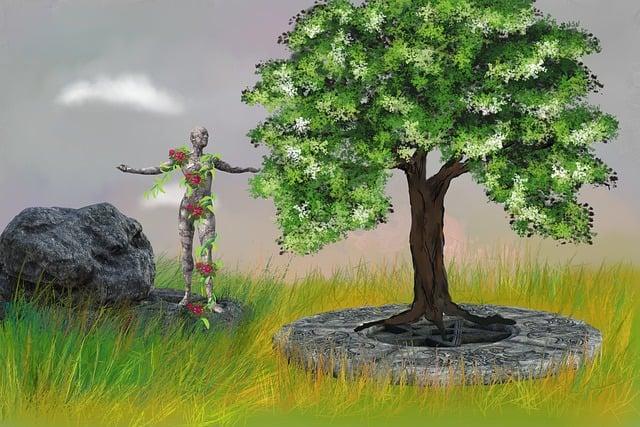
Exploring the Intriguing Concept of Gaia Hypothesis
Embark on a journey into the captivating realms of the Gaia Hypothesis, a thought-provoking concept that intertwines science, ecology, and philosophy in a harmonious dance. Explore the idea that the Earth is a living organism, capable of self-regulation and maintaining conditions suitable for life.
Unravel the mysteries behind Gaia, the Greek goddess of the Earth, and delve into the profound implications of viewing our planet as a single, interconnected entity. Discover how this hypothesis challenges traditional scientific thinking and fosters a deeper appreciation for the intricate web of life that blankets our world in beauty and complexity.
Understanding the Role of Earth as a Living Organism
Earth, our home in the vast universe, is often likened to a living organism in the Gaia hypothesis. This hypothesis proposes that our planet functions as a self-regulating system, maintaining conditions necessary for life to thrive. Just as a living organism maintains internal stability, Earth works to sustain the delicate balance of ecosystems, climate, and biodiversity.
<p>Through intricate interactions between the atmosphere, oceans, land, and life forms, Earth creates a harmonious environment that supports the survival of various species. This interconnected web of life showcases the interdependence of all living and non-living elements on our planet, highlighting the profound connection between humanity and the Earth itself.</p>
Implications of Gaia Hypothesis on Environmental Conservation
The Gaia Hypothesis, proposed by James Lovelock, suggests that the Earth functions as a self-regulating system to maintain conditions suitable for life. This concept envisions our planet as a living organism, where all living and non-living elements interact to achieve balance and stability. Applying this hypothesis to environmental conservation can have profound implications for how we approach sustainability efforts.
One key implication is a shift towards viewing ecosystems as interconnected entities that must be preserved holistically. By recognizing the delicate balance of nature, conservation practices can focus on protecting entire ecosystems rather than isolated species or areas. This broad perspective encourages a more comprehensive and effective approach to safeguarding the environment. Moreover, integrating the principles of the Gaia Hypothesis into conservation strategies can inspire innovative solutions that mimic natural processes, fostering resilience and harmony within ecosystems.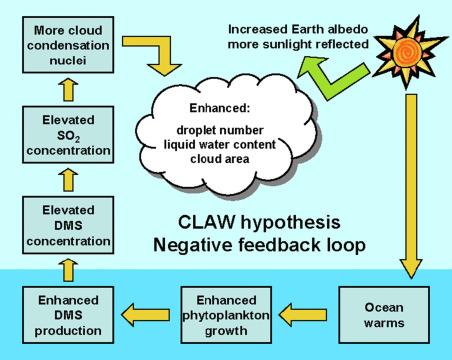
Practical Ways to Embrace Gaia Hypothesis in Everyday Life
Incorporating the principles of the Gaia Hypothesis into our daily lives can foster a deeper connection with our planet and promote sustainable living practices. One practical way to embrace this concept is by growing your own food organically. Cultivating a small vegetable garden or herb patch not only reduces reliance on store-bought produce but also nurtures a sense of stewardship towards the Earth.
Another way to align with the Gaia Hypothesis is by participating in community clean-up efforts. Joining local environmental organizations or neighborhood initiatives to clean up parks, beaches, or streets helps to restore natural ecosystems and spread awareness about the importance of preserving our environment for future generations.
Q&A
**Q&A: Unveiling the Intriguing World of Gaia Hypothesis**
Q: What is the Gaia Hypothesis?
A: The Gaia Hypothesis, proposed by James Lovelock in the 1970s, suggests that Earth functions as a self-regulating organism, maintaining conditions suitable for life.
Q: How does the Gaia Hypothesis relate to environmental conservation?
A: The Gaia Hypothesis underscores the interconnectedness of all living and non-living components on Earth, emphasizing the importance of preserving ecological balance for sustainability.
Q: Can you provide examples of Gaia Hypothesis in action?
A: Examples include the regulation of oxygen and carbon dioxide levels by plants and oceans, showcasing how Earth’s systems work together to support life.
Q: What are the criticisms of the Gaia Hypothesis?
A: Critics argue that the Gaia Hypothesis anthropomorphizes Earth and oversimplifies complex ecological processes, raising questions about its scientific validity.
Q: How can individuals contribute to Gaia Hypothesis ideals in everyday life?
A: By adopting eco-friendly practices such as recycling, reducing carbon footprint, and supporting conservation efforts, individuals can play a part in maintaining Earth’s delicate balance.
Q: What future implications does the Gaia Hypothesis hold for environmental stewardship?
A: The Gaia Hypothesis urges a shift towards holistic approaches to environmental management, encouraging a deeper understanding and respect for the interconnected web of life on Earth.
Final Thoughts
In conclusion, the Gaia Hypothesis invites us to view Earth not just as a planet, but as a living, interconnected system where all aspects work in harmony. This unique perspective challenges us to rethink our relationship with the environment and emphasizes the importance of maintaining balance and sustainability. As we delve deeper into understanding Gaia, we are reminded of the intricate web of life that surrounds us and the profound impact our actions can have on the delicate equilibrium of our planet. Let us embrace this holistic approach and strive to be stewards of Gaia, nurturing and cherishing our interconnected existence for generations to come.
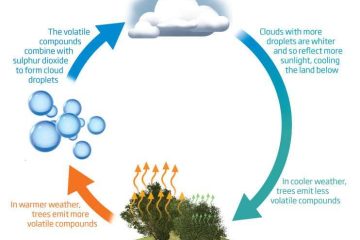
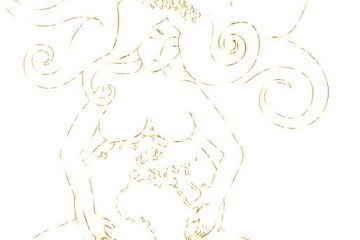
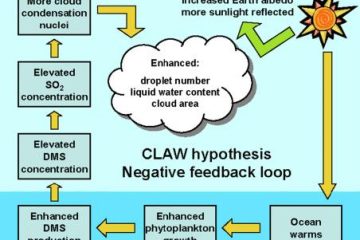
0 Comments